North Surrey Learning Centre 24-25
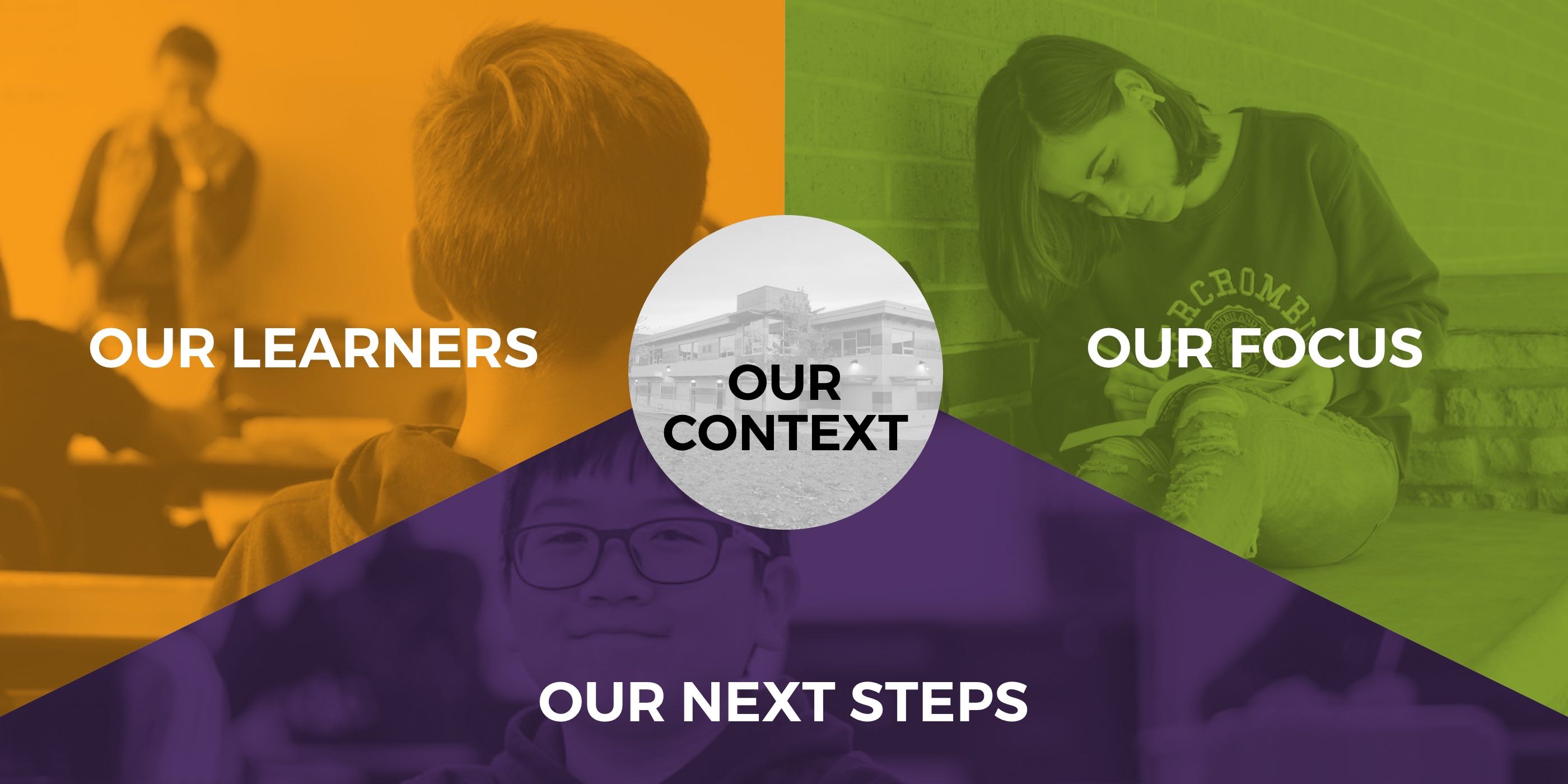

OUR CONTEXT
We'd like to acknowledge that North Surrey Learning Centre is situated on the traditional, unceded territory of the Katzie, Kwantlen, Semiahmoo, and other Coast Salish Nations. North Surrey Learning Centre is a welcoming alternative secondary school providing engaging, educational opportunities for students ages 15 to 18.
Our students are a diverse group with a wide range of abilities, gifts and talents. They are artistic, musical, athletic, creative and divergent thinkers. One commonality among our students is that most have found traditional mainstream settings do not work for their learning style and their level of self confidence has dropped because of that. They appreciate the more flexible, more individualized and more self paced educational programming we can offer. Our purpose is to nurture the inherent abilities of our students, build their self confidence and thereby change the narrative of their stories, from one of non-success to success.
Education is a “contact” sport; the young brain is designed to develop, grow and “flourish in a social context” (C. Elders, Clinical Psychologist), and establishing positive relationships is a foundational feature of our learning centre. Capture the heart, and it is easier to engage the hands and the brain. Our students need the support of our staff and their peers to help them discover their passions, their voices, their self confidence and build on their strengths. With support focused on the diverse learning, emotional and social needs of each student, pathways are created to achieve their educational goals.
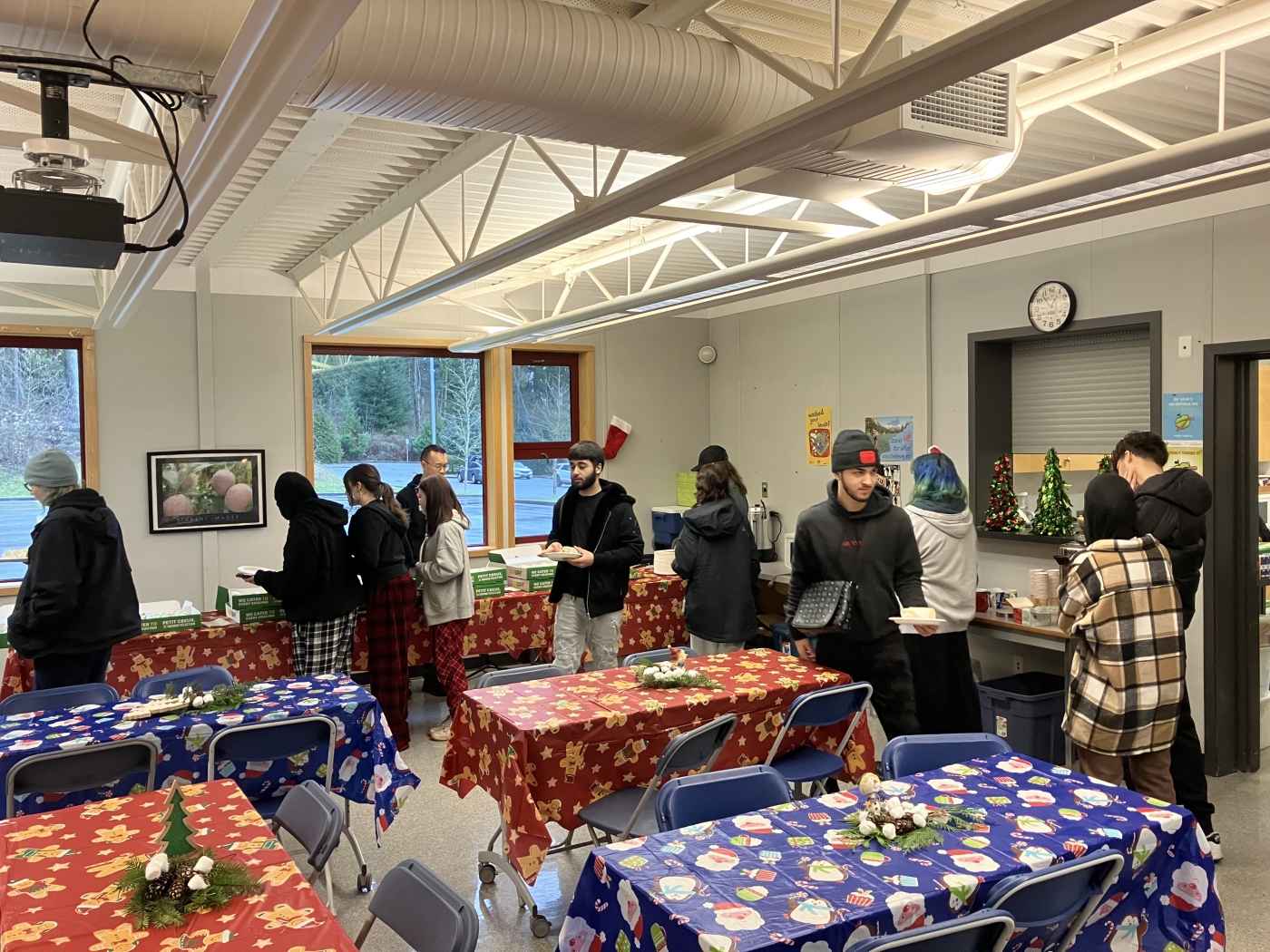
OUR LEARNERS
Students who are personally aware and responsible, recognize how their decisions and actions affect their mental, physical, emotional, social, and cognitive wellness and take increasing responsibility for caring for themselves (Albert Bandura, Psychologist). Students who have strong self-efficacy and self confidence participate more in class, work harder, persist longer and have fewer adverse emotional reactions when encountering difficulties. They are able to manage stress and express a sense of well-being.
We want our learners to understand that their decisions and choices affect themselves and others around them. By developing their competencies in the areas of self awareness and self management, they will be able to approach their goals, tasks and challenges with a positive mindset, and this in turn will lead to a greater engagement in their learning and personal development. This will be demonstrated through exploring and describing factors that shape personal identities, including social and cultural factors.
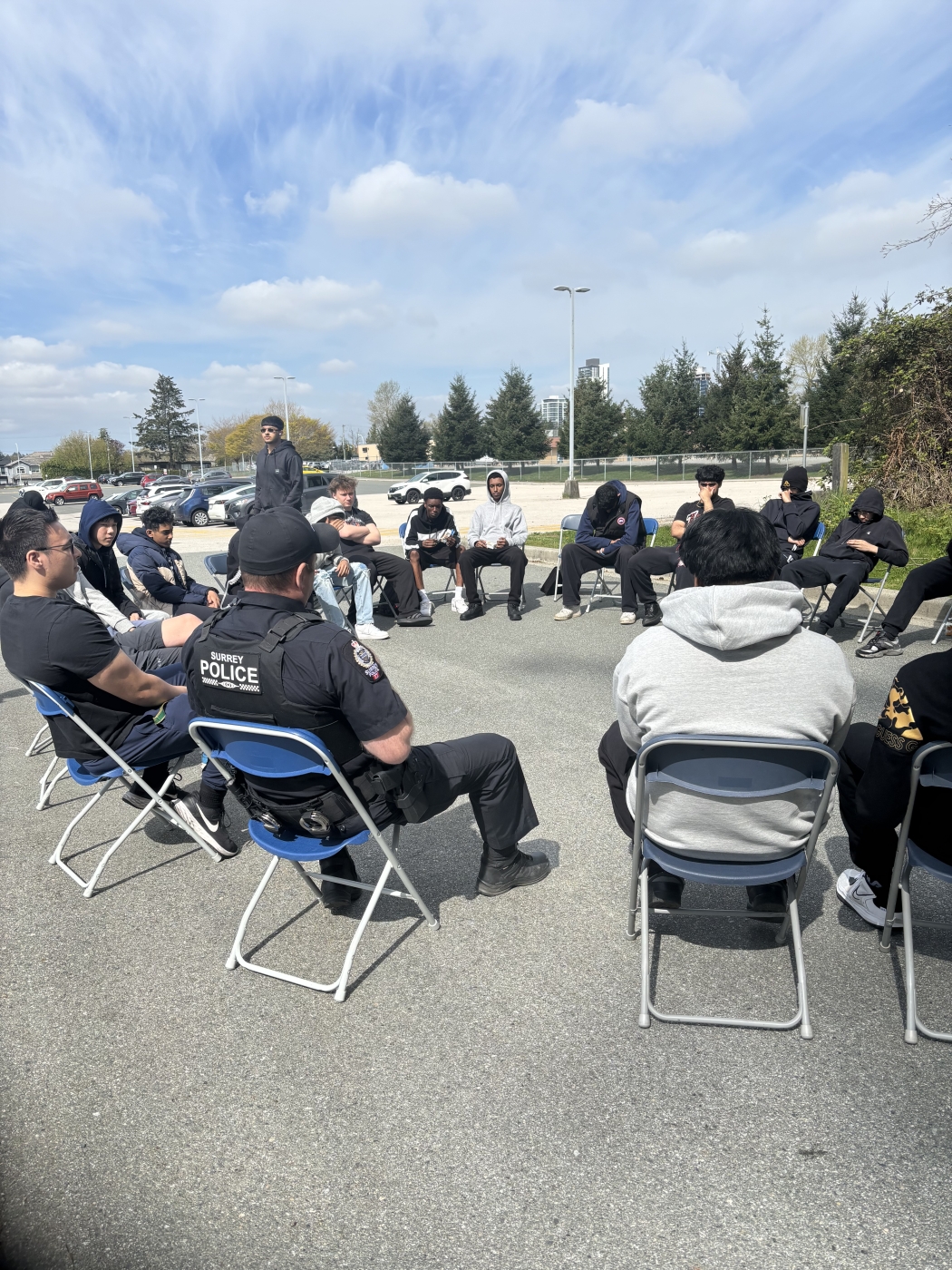
OUR FOCUS
SOCIAL EMOTIONAL LEARNING
Positive Personal and Cultural Identity
Learning Goals:
- Our learners can make connections between emotions and learning. They can identify their own emotions, as well as those of others.
- Our learners can recognize their strengths and can use strategies to, build confidence, focus and accomplish their goals.
- Our learners believe in their capabilities to achieve academic, career and/or personal goals.
Learning Centres have seen a significant increase in the number of students enrolling at our school sites. With this intake of numerous students, across the Learning Centres, it has become evident that the pandemic interrupted not only the intellectual development of youth, but perhaps more importantly, their social emotional development and self confidence. “Carla Elfers, a Vancouver clinical youth psychologist, said generation Z is struggling just as much from how the pandemic has reduced social contact, volunteer activities and extracurricular events as it has from the disarray in their formal academic studies.” (‘In the Dark’ – Douglas Todd Vancouver Sun, Jan 29, 2022).
As our students have moved on in their educational journey this school year, we have been focusing on building their self confidence through their social emotional learning (SEL) experiences across the curriculum. One area of focus has been their learning in Human Hour. "Positive Personal and Cultural Identity involves the awareness, understanding, and appreciation of the factors that contribute to a healthy sense of oneself; it includes knowledge of one’s family background, heritage(s), language(s), beliefs, and perspectives in a pluralistic society. People who have a positive personal and cultural identity value their personal and cultural narratives and understand how these shape their identity. They exhibit a sense of self-worth, self-awareness, and positive identity to become confident individuals who take satisfaction in who they are and what they can do. They contribute to their own well-being and to the well-being of their family, community, and society. " The connection between people and place is foundational to First Peoples perspectives on the world. Our focus is extended through student learning in the weekly Human Hour class where students learn about real world issues and how they contribute to the development of self confidence. Students can demonstrate this through their Human Hour weekly self reflections and direct feedback from their teachers.
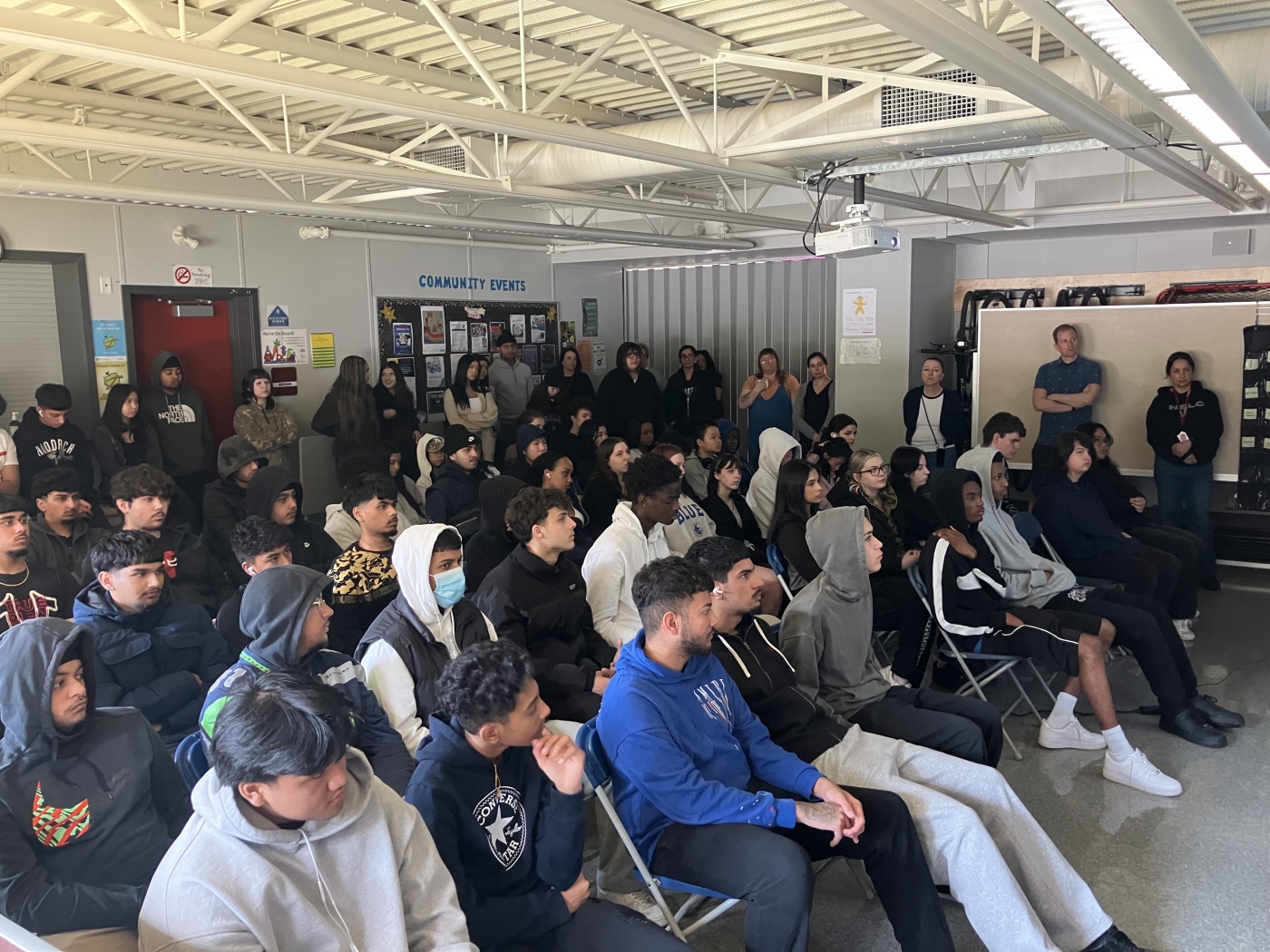
OUR NEXT STEPS
At the Learning Centre, student learning begins right away. All students create a Student Learning Plan for themselves, highlighting their interests, learning preferences and learning profile.
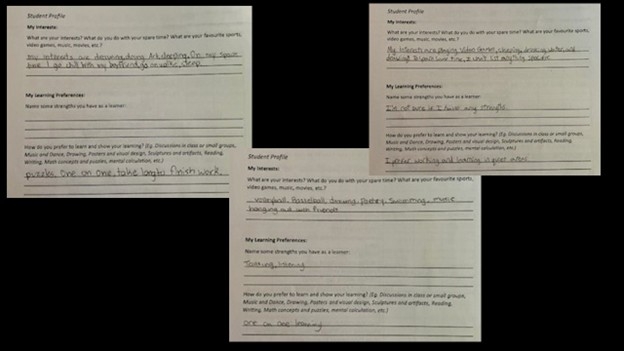 Currently, Human Hour is a weekly voluntary learning opportunity for any student to engage in and is currently not officially attached to a particular course. In September, the structure of Human Hour will continue every Thursday with the addition of students being able to more intentionally demonstrate the Positive Personal and Cultural Identity Competency through a variety of course options: New Media 11, English First People's 11, English First People's 12, Social Studies 11, Social Justice 12, Contemporary Indigenous Studies 12, World History 12, Visual Arts 11 or Visual Arts 12. With teacher implementation and ongoing support, the goal is for students to earn course credit in 2 or more of the courses listed above through a combination of specific curricular competencies and the Positive Personal and Cultural Identity Competency. We will then measure the overall SEL impact the Human Hour structure has made on the self confidence of our students by having them submit quarterly self reflection focusing on the Positive Personal and Cultural Identity Competency and how it relates to their curricular competencies they are demonstrating within the Human Hour courses they've chosen. We predict our students' overall self confidence will improve through their Positive Personal and Cultural Identity Competency quarterly self reflections and with the number of courses they earn credit for through Human Hour by the end of June.
Currently, Human Hour is a weekly voluntary learning opportunity for any student to engage in and is currently not officially attached to a particular course. In September, the structure of Human Hour will continue every Thursday with the addition of students being able to more intentionally demonstrate the Positive Personal and Cultural Identity Competency through a variety of course options: New Media 11, English First People's 11, English First People's 12, Social Studies 11, Social Justice 12, Contemporary Indigenous Studies 12, World History 12, Visual Arts 11 or Visual Arts 12. With teacher implementation and ongoing support, the goal is for students to earn course credit in 2 or more of the courses listed above through a combination of specific curricular competencies and the Positive Personal and Cultural Identity Competency. We will then measure the overall SEL impact the Human Hour structure has made on the self confidence of our students by having them submit quarterly self reflection focusing on the Positive Personal and Cultural Identity Competency and how it relates to their curricular competencies they are demonstrating within the Human Hour courses they've chosen. We predict our students' overall self confidence will improve through their Positive Personal and Cultural Identity Competency quarterly self reflections and with the number of courses they earn credit for through Human Hour by the end of June.
